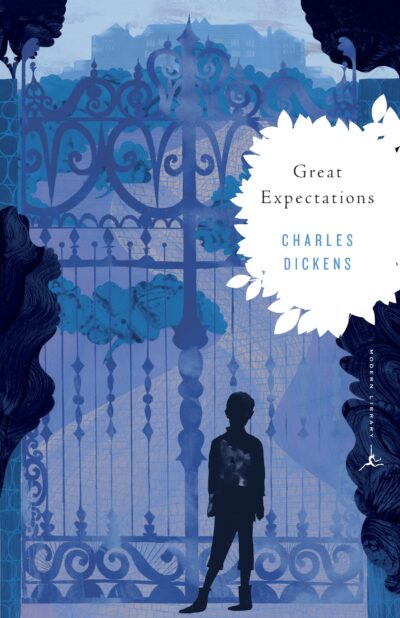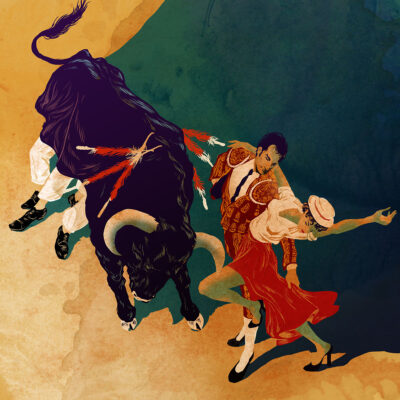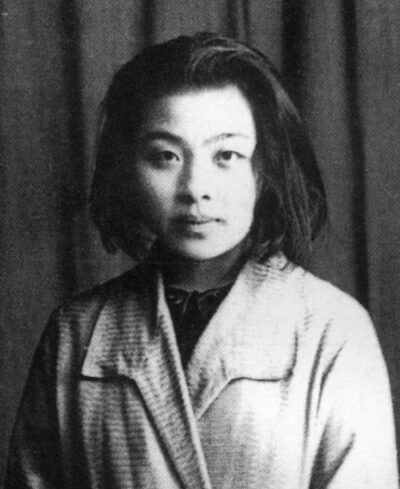Now is the time for us to talk about plot. The plot is what actually happens in the story, though it may be presented out of order, through a variety of perspectives, or in some other non-linear telling. An important step of understanding how literature works, I think, is to separate the plot from the way it is conveyed.
Before this semester started, I knew I wanted to introduce the obscenity trials in Britain and the United States that occurred during the period we’re supposed to be covering in this course. Once I decided on the four units for the course, I thought plot would be the right place to address accusations of obscenity in literature, because an author can choose to include into the plot of a story taboo aspects of the human experience or not. Needless to say, this post will include taboo subjects.
Many of you have noted in discussion that it’s challenging to isolate a single element of story (just “storyworld” or just “character”) since you can’t have one without the other elements. I agree, and and as we discuss the reading, I hope we’ll also discuss how accusations of obscenity might focus on narrative technique, character, or storyworld–as well as plot.
Before class on Monday, I’d like you to read chapter 13 of Ulysses. This is different than what we’ve typically done to start a new unit, but I want to see how it works if we’ve all read the same thing.
My Experience Reading
As with most things I include in my posts, I’ve read this text before (you’re still not allowed to do that though). I actually decided to use this particular text (though I imagine you’ll all roll your eyes at my continued discussion of Ulysses) because a new novel I’m reading opens with a sexually explicit scene that made me shy away from including it in my last post. The New Life by Tom Crewe opens with a man standing behind another man on a crowded bus, getting aroused, and…you can read the sample on Amazon. It’s pretty incredible.
I’d considered focusing on many different texts that have been accused of obscenity, but then I remembered that Leopold Bloom’s public masturbation in Ulysses was the first accusation of obscenity leveled at the novel. At first, I started hunting for the “obscene” moment in the chapter so I could figure out if I was going to actually assign this in class or not. I found the climactic moment pretty quickly and was reminded that right after Bloom climaxes, Gerty gets up to walk away and he realizes that she has a limp:
Slowly, without looking back she went down the uneven strand to Cissy, to Edy to Jacky and Tommy Caffrey, to little baby Boardman. It was darker now and there were stones and bits of wood on the strand and slippy seaweed. She walked with a certain quiet dignity characteristic of her but with care and very slowly because—because Gerty MacDowell was…
Tight boots? No. She’s lame! O!
Mr Bloom watched her as she limped away. Poor girl! That’s why she’s left on the shelf and the others did a sprint. Thought something was wrong by the cut of her jib. Jilted beauty. A defect is ten times worse in a woman. But makes them polite. Glad I didn’t know it when she was on show. Hot little devil all the same. I wouldn’t mind. Curiosity like a nun or a negress or a girl with glasses. That squinty one is delicate. Near her monthlies, I expect, makes them feel ticklish. I have such a bad headache today. Where did I put the letter? Yes, all right. All kinds of crazy longings. Licking pennies. Girl in Tranquilla convent that nun told me liked to smell rock oil. Virgins go mad in the end I suppose. Sister? How many women in Dublin have it today? Martha, she. Something in the air. That’s the moon. But then why don’t all women menstruate at the same time with the same moon, I mean? Depends on the time they were born I suppose.
-James Joyce, Ulysses
I started to worry that even if the Society for the Suppression of Vice was concerned about the representation of an orgasm, I was going to be squeamish about an uncomfortably outdated representation of disability. But I made a note to look up how disability studies scholars had talked about the scene and kept reading (I did find an article that I looked at later). Soon, I got more interested in reading the chapter as it was serialized in The Little Review, so I started looking through issues at the website for The Modernist Journals Project and eventually found the end of the chapter in this issue. Because I’d been reading accounts of the obscenity trial, I was surprised by how well-developed the three young women are at the start of the chapter. I was worried that I had misremembered the chapter and Leopold Bloom was a bit like the bus predator in Sex Education). As I read the full chapter, I felt thoroughly drawn into the conversation between the three young women, and specifically Gerty’s thoughts about the young man she loves.
the boy that had the bicycle off the London bridge road always riding up and down in front of her window. Only now his father kept him in in the evenings studying hard to get an exhibition in the intermediate that was on and he was going to go to Trinity college to study for a doctor when he left the high school like his brother W. E. Wylie who was racing in the bicycle races in Trinity college university. Little recked he perhaps for what she felt, that dull aching void in her heart sometimes, piercing to the core. Yet he was young and perchance he might learn to love her in time. They were protestants in his family and of course Gerty knew Who came first and after Him the Blessed Virgin and then Saint Joseph. But he was undeniably handsome with an exquisite nose and he was what he looked, every inch a gentleman, the shape of his head too at the back without his cap on that she would know anywhere something off the common and the way he turned the bicycle at the lamp with his hands off the bars and also the nice perfume of those good cigarettes and besides they were both of a size too he and she and that was why Edy Boardman thought she was so frightfully clever because he didn’t go and ride up and down in front of her bit of a garden.
-James Joyce, Ulysses
And the way she’s dressed herself carefully to impress him
Her wellturned ankle displayed its perfect proportions beneath her skirt and just the proper amount and no more of her shapely limbs encased in finespun hose with highspliced heels and wide garter tops. As for undies they were Gerty’s chief care and who that knows the fluttering hopes and fears of sweet seventeen (though Gerty would never see seventeen again) can find it in his heart to blame her? She had four dinky sets with awfully pretty stitchery, three garments and nighties extra, and each set slotted with different coloured ribbons, rosepink, pale blue, mauve and peagreen, and she aired them herself and blued them when they came home from the wash and ironed them and she had a brickbat to keep the iron on because she wouldn’t trust those washerwomen as far as she’d see them scorching the things. She was wearing the blue for luck, hoping against hope, her own colour and lucky too for a bride to have a bit of blue somewhere on her because the green she wore that day week brought grief because his father brought him in to study for the intermediate exhibition and because she thought perhaps he might be out because when she was dressing that morning she nearly slipped up the old pair on her inside out and that was for luck and lovers’ meeting if you put those things on inside out or if they got untied that he was thinking about you so long as it wasn’t of a Friday.
-James Joyce, Ulysses
After growing annoyed with the youngsters her two friends had to bring with them, she starts to wish they would go away. And this is when she really starts to notice the man in black [Bloom had gone to a funeral earlier in the day]
Gerty wished to goodness they would take their squalling baby home out of that and not get on her nerves, no hour to be out, and the little brats of twins. She gazed out towards the distant sea. It was like the paintings that man used to do on the pavement with all the coloured chalks and such a pity too leaving them there to be all blotted out, the evening and the clouds coming out and the Bailey light on Howth and to hear the music like that and the perfume of those incense they burned in the church like a kind of waft. And while she gazed her heart went pitapat. Yes, it was her he was looking at, and there was meaning in his look. His eyes burned into her as though they would search her through and through, read her very soul. Wonderful eyes they were, superbly expressive, but could you trust them? People were so queer. She could see at once by his dark eyes and his pale intellectual face that he was a foreigner, the image of the photo she had of Martin Harvey, the matinee idol, only for the moustache which she preferred because she wasn’t stagestruck like Winny Rippingham that wanted they two to always dress the same on account of a play but she could not see whether he had an aquiline nose or a slightly retroussé from where he was sitting. He was in deep mourning, she could see that, and the story of a haunting sorrow was written on his face. She would have given worlds to know what it was. He was looking up so intently, so still, and he saw her kick the ball and perhaps he could see the bright steel buckles of her shoes if she swung them like that thoughtfully with the toes down. She was glad that something told her to put on the transparent stockings thinking Reggy Wylie might be out but that was far away. Here was that of which she had so often dreamed. It was he who mattered and there was joy on her face because she wanted him because she felt instinctively that he was like no-one else. The very heart of the girlwoman went out to him, her dreamhusband, because she knew on the instant it was him. If he had suffered, more sinned against than sinning, or even, even, if he had been himself a sinner, a wicked man, she cared not. Even if he was a protestant or methodist she could convert him easily if he truly loved her. There were wounds that wanted healing with heartbalm. She was a womanly woman not like other flighty girls unfeminine he had known, those cyclists showing off what they hadn’t got and she just yearned to know all, to forgive all if she could make him fall in love with her, make him forget the memory of the past. Then mayhap he would embrace her gently, like a real man, crushing her soft body to him, and love her, his ownest girlie, for herself alone.
-James Joyce, Ulysses
I’m probably quoting too much, but the main thing I notice as I read it is that it’s easy to get caught up in the romantic way Gerty is thinking about the man she doesn’t know who is looking at her and seemingly has a sadness in his eyes. The primary thing I notice is that she wants him to look at her. She wants to be seen. She deliberately leans back (there’s a famous book inspired by this and the publisher’s commentary on it). It’s not very explicit, to be honest. The fireworks that start going off are the hint at what the man is doing.
And Jacky Caffrey shouted to look, there was another and she leaned back and the garters were blue to match on account of the transparent and they all saw it and they all shouted to look, look, there it was and she leaned back ever so far to see the fireworks and something queer was flying through the air, a soft thing, to and fro, dark. And she saw a long Roman candle going up over the trees, up, up, and, in the tense hush, they were all breathless with excitement as it went higher and higher and she had to lean back more and more to look up after it, high, high, almost out of sight, and her face was suffused with a divine, an entrancing blush from straining back and he could see her other things too, nainsook knickers, the fabric that caresses the skin, better than those other pettiwidth, the green, four and eleven, on account of being white and she let him and she saw that he saw and then it went so high it went out of sight a moment and she was trembling in every limb from being bent so far back that he had a full view high up above her knee where no-one ever not even on the swing or wading and she wasn’t ashamed and he wasn’t either to look in that immodest way like that because he couldn’t resist the sight of the wondrous revealment half offered like those skirtdancers behaving so immodest before gentlemen looking and he kept on looking, looking. She would fain have cried to him chokingly, held out her snowy slender arms to him to come, to feel his lips laid on her white brow, the cry of a young girl’s love, a little strangled cry, wrung from her, that cry that has rung through the ages. And then a rocket sprang and bang shot blind blank and O! then the Roman candle burst and it was like a sigh of O! and everyone cried O! O! in raptures and it gushed out of it a stream of rain gold hair threads and they shed and ah! they were all greeny dewy stars falling with golden, O so lovely, O, soft, sweet, soft!
Then all melted away dewily in the grey air: all was silent. Ah! She glanced at him as she bent forward quickly, a pathetic little glance of piteous protest, of shy reproach under which he coloured like a girl. He was leaning back against the rock behind. Leopold Bloom (for it is he) stands silent, with bowed head before those young guileless eyes. What a brute he had been! At it again? A fair unsullied soul had called to him and, wretch that he was, how had he answered? An utter cad he had been! He of all men! But there was an infinite store of mercy in those eyes, for him too a word of pardon even though he had erred and sinned and wandered. Should a girl tell? No, a thousand times no. That was their secret, only theirs, alone in the hiding twilight and there was none to know or tell save the little bat that flew so softly through the evening to and fro and little bats don’t tell.
-James Joyce, Ulysses
The most startling shift happens right after this paragraph, when it seems like we shift into Bloom’s perspective after being in Gerty’s. This is the narration we get most often in the novel…a very staccato stream of consciousness from Bloom’s mind. Short sentences that only get connected if you work hard to connect them.
Mr Bloom watched her as she limped away. Poor girl! That’s why she’s left on the shelf and the others did a sprint. Thought something was wrong by the cut of her jib. Jilted beauty. A defect is ten times worse in a woman. But makes them polite. Glad I didn’t know it when she was on show. Hot little devil all the same. I wouldn’t mind. Curiosity like a nun or a negress or a girl with glasses. That squinty one is delicate. Near her monthlies, I expect, makes them feel ticklish. I have such a bad headache today. Where did I put the letter? Yes, all right. All kinds of crazy longings. Licking pennies. Girl in Tranquilla convent that nun told me liked to smell rock oil. Virgins go mad in the end I suppose. Sister? How many women in Dublin have it today? Martha, she. Something in the air. That’s the moon. But then why don’t all women menstruate at the same time with the same moon, I mean? Depends on the time they were born I suppose. Or all start scratch then get out of step. Sometimes Molly and Milly together. Anyhow I got the best of that. Damned glad I didn’t do it in the bath this morning over her silly I will punish you letter.
-James Joyce, Ulysses
First off, he’s glad he didn’t know she was disabled when he was fantasizing about her, then he turns immediately to other women that are a “curiosity,” which I take to mean attractive to him: “a nun or a negress or a girl with glasses.” And he’s thinking about his wife and his daughter (Molly and Milly) and their menstrual cycles syncing up, and then a saucy letter he received from a woman that he considered masturbating to in the bath earlier in the morning. I mean, the style is so dramatically different from Gerty’s perspective. I could say more about earlier parts of the chapter: the fact that the church is nearby, holding a service for the men’s temperance retreat. I think it’s interesting that this encounter between Gerty and Leopold is interwoven with religious activities that make Gerty think about her own abusive father,
Nay, she had even witnessed in the home circle deeds of violence caused by intemperance and had seen her own father, a prey to the fumes of intoxication, forget himself completely for if there was one thing of all things that Gerty knew it was that the man who lifts his hand to a woman save in the way of kindness, deserves to be branded as the lowest of the low.
-James Joyce, Ulysses
And then as she imagines what is happening in the church, she’s reminded of her confession to Father Conroy, which I take to mean confession about what might be called “impure thoughts.”:
He told her that time when she told him about that in confession, crimsoning up to the roots of her hair for fear he could see, not to be troubled because that was only the voice of nature and we were all subject to nature’s laws, he said, in this life and that that was no sin because that came from the nature of woman instituted by God, he said, and that Our Blessed Lady herself said to the archangel Gabriel be it done unto me according to Thy Word. He was so kind and holy and often and often she thought and thought could she work a ruched teacosy with embroidered floral design for him as a present or a clock but they had a clock she noticed on the mantelpiece white and gold with a canarybird that came out of a little house to tell the time the day she went there about the flowers for the forty hours’ adoration because it was hard to know what sort of a present to give or perhaps an album of illuminated views of Dublin or some place.
-James Joyce, Ulysses
Wikipedia’s Plot Summary of Chapter 13
All the action of the episode takes place on the rocks of Sandymount Strand, the shoreline that Stephen visited in Episode 3. A young woman, Gerty MacDowell, is seated on the rocks with her two friends, Cissy Caffrey and Edy Boardman. The girls are taking care of three children, a baby, and four-year-old twins named Tommy and Jacky. Gerty contemplates love, marriage and femininity as night falls. The reader is gradually made aware that Bloom is watching her from a distance. Gerty teases the onlooker by exposing her legs and underwear, and Bloom, in turn, masturbates. Bloom’s masturbatory climax is echoed by the fireworks at the nearby bazaar. As Gerty leaves, Bloom realises that she has a lame leg, and believes this is the reason she has been “left on the shelf”. After several mental digressions he decides to visit Mina Purefoy at the maternity hospital. It is uncertain how much of the episode is Gerty’s thoughts, and how much is Bloom’s sexual fantasy. Some believe that the episode is divided into two halves: the first half the highly romanticized viewpoint of Gerty, and the other half that of the older and more realistic Bloom.[43] Joyce himself said, however, that “nothing happened between [Gerty and Bloom]. It all took place in Bloom’s imagination”.[43] Nausicaa attracted immense notoriety while the book was being published in serial form. It has also attracted great attention from scholars of disability in literature.[44] The style of the first half of the episode borrows from (and parodies) romance magazines and novelettes. Bloom’s contemplation of Gerty parodies Dedalus’s vision of the wading girl at the seashore in A Portrait.[45][46]
-“Ulysses (novel)”, Plot Summary, Wikipedia
My revision
Bolded sections are my changes
All the action of the episode takes place on the rocks of Sandymount Strand, the shoreline that Stephen visited in Episode 3. A young woman, Gerty MacDowell, is seated on the rocks with her two friends, Cissy Caffrey and Edy Boardman. The girls are taking care of three children, a baby, and four-year-old twins named Tommy and Jacky. Gerty thinks of a boy she loves (and wears special clothes for), her abusive father, and her annoyance with her companions as night falls. The reader is gradually made aware that a man is watching her from a distance. Gerty notices that he is looking at her and imagines making him fall in love with her. As her friends move away and fireworks begin to explode, she realizes that he is aroused and deliberately leans back, exposing her legs and underwear. Bloom’s masturbatory climax is echoed by the fireworks at the nearby bazaar. As Gerty leaves, the perspective shifts to the man, who is Leopold Bloom. He realises that she has a lame leg, and feels glad that he didn’t know it before climaxing, but concludes that she is a “hot little devil all the same.” After several mental digressions he decides to visit Mina Purefoy at the maternity hospital.
-My Revision of Plot Summary from Wikipedia
I have taken out all of the critical speculation on the scene because I think it is quite separate from the plot. I do think it could be useful to add more summary of what happens at the end, but I haven’t tried that yet.
My adaptation
All the action of the episode takes place on the rocks of Sandymount Strand, the shoreline that Stephen visited in Episode 3. A young woman, Gerty MacDowell, is seated on the rocks with her two friends, Cissy Caffrey and Edy Boardman. The girls are taking care of three children, a baby, and four-year-old twins named Tommy and Jacky. Gerty thinks of a boy she loves (and wears special clothes for), her abusive father, and her annoyance with her companions as night falls. The reader is gradually made aware that a man is watching her from a distance. Gerty notices that he is looking at her and imagines making him fall in love with her. As her friends move away and fireworks begin to explode, she realizes that he is aroused and deliberately leans back, exposing her legs and underwear. The man’s masturbatory climax is echoed by the fireworks at the nearby bazaar. As Gerty leaves, the perspective shifts to the man, who is Leopold Bloom. He realises that she has a lame leg, and feels glad that he didn’t know it before climaxing, but concludes that she is a “hot little devil all the same.” And then the perspective shifts again to Gerty, though a very different narrative style than presented at the start of the chapter. Gerty is oblivious to the man and wonders why he is putting his nose in his shirt.
-Plot Summary communicating my adaptation of the novel
I think this adaptation makes it clearer that Gerty is not really the one narrating the first part of the chapter. I don’t really want that to be how the story goes, but it’s what some scholars suggest and I just want to see how it would shock my understanding of Gerty to realize that Bloom was just imagining her to have all of the fantasies about boys and concern about underwear. The idea that he would be sitting alone watching Gerty and her friends and imagining their lives definitely changes my perspective on the chapter. Gerty becomes an object of fantasy instead of a willing participant in a wordless sexual encounter.
Totally different thing that is interesting
Works Cited
Joyce, James. The Project Gutenberg eBook of Ulysses. https://www.gutenberg.org/files/4300/4300-h/4300-h.htm#chap13. Accessed 22 Mar. 2024.
“Ulysses (Novel).” Wikipedia, 22 Mar. 2024. Wikipedia, https://en.wikipedia.org/w/index.php?title=Ulysses_(novel)&oldid=1214939335#cite_note-:0-43.
Featured Image
“Early fireworks” by vpickering is licensed under CC BY-NC-ND 2.0.




